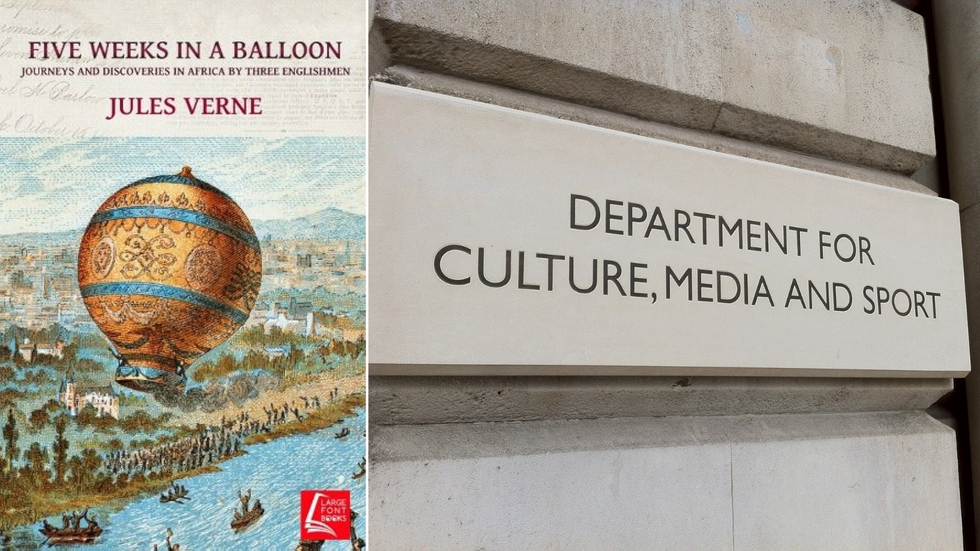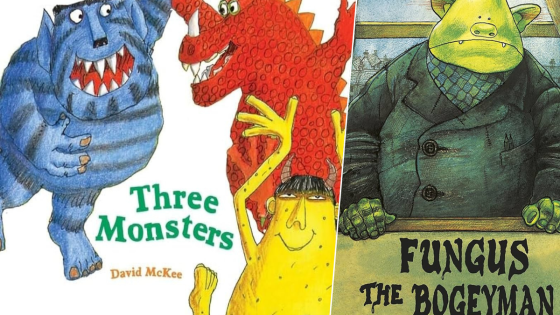Children’s novels and literary classics are among books which have been removed from libraries in the UK after just one complaint by members of the public, it has emerged.
Raymond Briggs’s “Fungus the Bogeyman”, Jules Verne’s “Five Weeks in a Balloon”, and Chris Claremont’s Marvel comic “The Uncanny X-Men” were all among those cancelled due to concerns over offensive content – which has been slammed as “massively dangerous”.
At least 16 books have so far been torn from shelves – while dozens more complaints have flooded in besides, some of which cited the promotion of diversity and inclusion to children as an example of why certain content wasn’t permissible.
One library customer in Hertfordshire submitted a complaint over the use of the word “golliwog” in “Fungus the Bogeyman” – which contains a illustration of one of the controversial dolls with blonde hair, blue eyes and pink skin.
Three Monsters and Fungus the Bogeyman have both been shelved, so to speak
Amazon
Another in Coventry successfully petitioned for the removal of Verne’s “Five Weeks in a Balloon” – the story of a 4,000-mile trip across Africa – owing to its “inappropriate and racist language”.
Verne’s novel drew ire from the customer for its use of the phrase “beastly n******s” – which the complainant found inappropriate due to the library’s place in a “multi-ethnic population”.
In Essex, a customer forced a library to remove a copy of a children’s book – “Three Monsters” by David McKee – because they were “very concerned and appalled by the language [in] this book at a time when we are encouraging children to be inclusive and diverse”, and claimed “it doesn’t send the right message to children”.
The offending section in McKee’s book had read: “‘Clear off’, shouted the second monster. ‘We don’t want any funny foreigner types here’.”
MORE LIKE THIS:

Verne’s “Five Weeks in a Balloon” was also removed – but ultimate oversight stems from the DCMS
Amazon/Flickr
And in Edinburgh, all copies of Chris Claremont’s Marvel comic “The Uncanny X-Men: The Trial of Magneto” were removed from public view after just one parent complained over the “use of the n-word” inside.
A Times investigation into councils responsible for public libraries yielded 163 responses from 204 Freedom of Information requests, and revealed that 16 books had been ‘de-platformed’ in 11 council jurisdictions following a singular complaint by a parent, customer or librarian.
The paper revealed that there had been at least an additional 48 other book challenges in 29 councils – but these did not result in the book’s removal.
And Louise Cooke, Loughborough University’s emeritus professor of of information and knowledge management, said: “I think that the main difference is that it’s [banning books is] much more covert in the UK than in America.
“In America, it’s a huge public issue and sometimes you even wonder if it is actually happening a lot more in the US or whether there is just a lot more awareness of it.”
Growing calls to remove any material which could potentially offend individuals were “massively dangerous”, Cooke continued.
Most libraries follow the Chartered Institute of Library and Information Professionals (CILIP)’s national guidance which warns against censoring books unless their content has been found to be unlawful – but policy decisions are independently made by each library – with oversight both from local authorities and, ultimately, the Department for Digital, Culture, Media and Sport (DCMS).
GB News has approached the DCMS for comment.
Source Agencies

